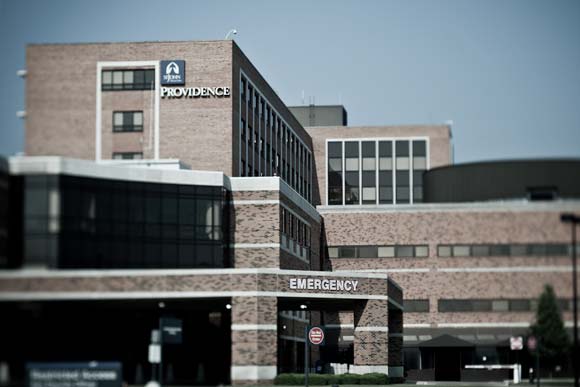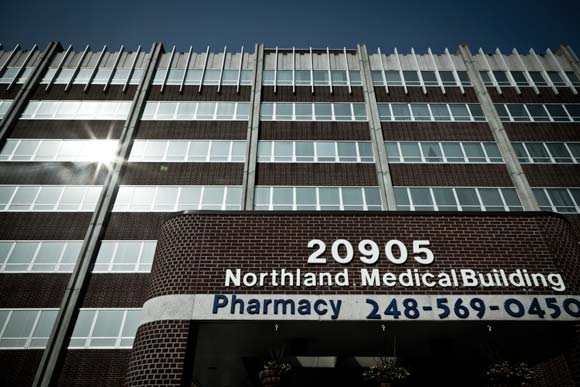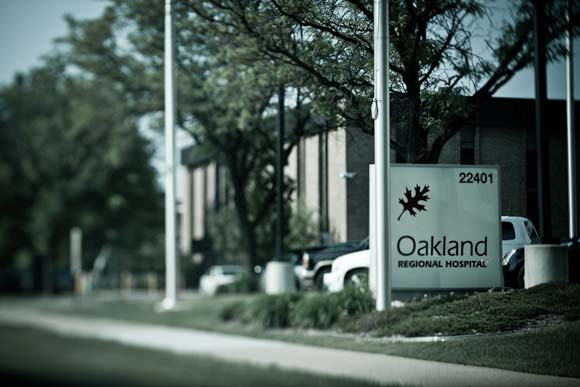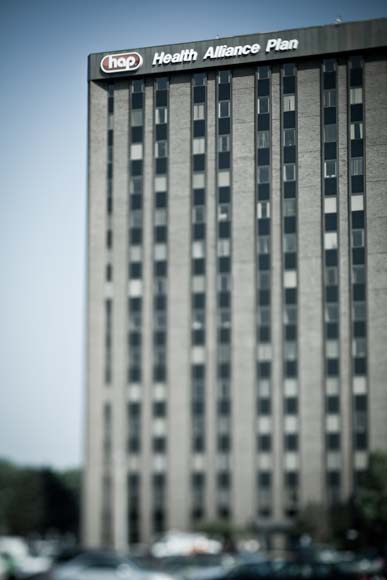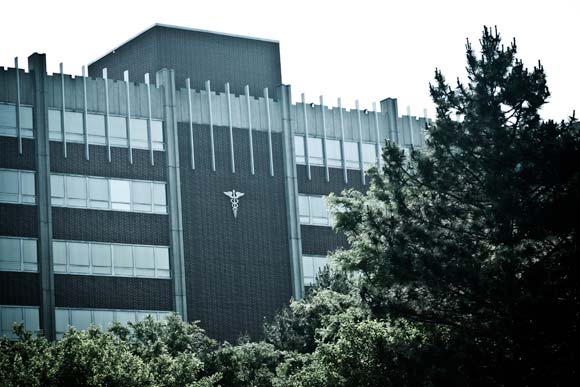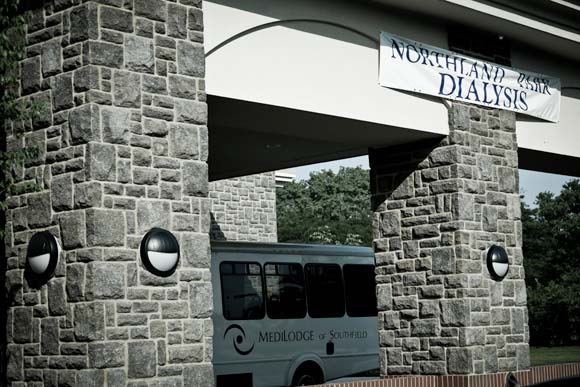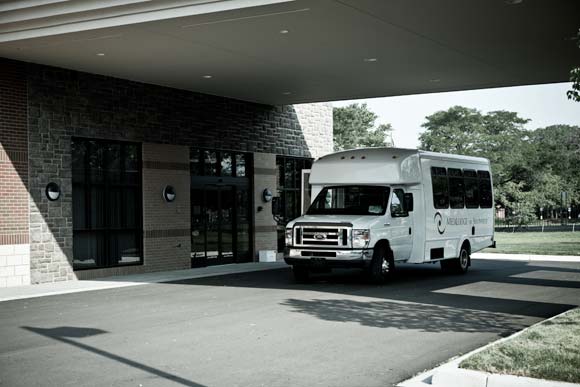Incubating Metro Detroit’s Health Care Economy
Business incubators and accelerators are all the rage. Some communities seem them as a vital new tool in economic development. Southfield, in its attempt to capitalize on the region’s growing reputation for medical excellence, is hoping to launch its first health care incubator.
Take a building, stock it with offices or ready-made labs, provide the phones, computers, Internet and other operational tools of running a business. Do it at an affordable price and layer it with guidance, business planning and access to knowledge and connections that can advance the work of budding entrepreneurs who set up shop in this ready-go space. Finally link them to people who may want what they’re selling.
Sound good? It’s the formula for a business incubator, the warming stations that give upstart companies a launching pad that can help their ideas take off and, if all goes well, their companies and products succeed. While upstarts and newcomers were once the primary audience for incubators, more often it’s established companies and their new ventures that are also being lured.
It’s not a new concept, though Michigan has been behind the curve due to a lack of governmental support and private sector interest. Universities got into incubators decades ago, pairing their research know-how and knowledge with fledgling companies and individuals who had promising concepts but small budgets. State government got into the game as well and, using incubators, business centers and accelerators regularly as an economic development tool …and a way to create a business identity or industry community for their cities and regions. Private investors and nonprofits are in the incubator pipeline as well, seeing the potential of putting money behind a product or service so that it may go from the trickle of conception to the geyser of success and bring a profit to all involved.
According to the National Business Incubator Association, there are about 1,200 business incubators around the country, most of them offering a low-cost, high-support way to take a business to the next level. Most offer space to a variety of endeavors. Others center around specialities, technology being a leader in dedicated incubators.
Incubators, like economic development, are all about what’s next and knowing where the people, information and dollars are going, and while technology has largely driven the creation of incubators – and accelerators – it is healthcare and life sciences, with their strong reliance on research and development, that are becoming a focus for business incubator projects. Nationally, Texas, Boston, New Jersey and Minnesota offer thriving incubators in the medical realm.
The pulse of Metro Detroit’s incubator spaces is pumping faster when it comes to these industries. The University of Michigan’s North Campus Research Complex opened in January at the site of the shuttered Pfizer facility in Ann Arbor, and is already home to several start-ups. In Plymouth, the Michigan Life Science and Innovation Center provides lab space courtesy of Ann Arbor SPARK. There’s also Oakland INCubator and Macomb-Oakland INCubator, which fosters growth in the fields of defense, homeland security and advanced manufacturing. Add to this list Oakland County’s Medical Main Street. While technically not an incubator, it is an alliance of hospitals, universities, medical device and biopharma companies attempting to expand metro Detroit’s emerging job sectors by developing a nationally recognized Center for Excellence in Health Care.
And then there are the smaller organizations that want to be the ‘little incubator that could’. Local case in point: The Southfield Downtown Development Authority, A.K.A. Cornerstone DDA.
The DDA director, Al Aceves, has assembled a board of health care professionals to design a health care incubator in the Oakland County city. The incubator is in the early planning stages, and Aceves doesn’t yet know exactly how it will operate, where it would be located or how it will be equipped, but he believes the city is positioned to be a real contender.
With Providence Hospital, Health Alliance Plan, the Northwest Park Dialysis Center, CLS Plasma, Oakland Community College and its growing and thriving health care curriculum and a soon-to-be-announced physical therapy operation, there is a pool of potential users, Aceves explains. For example, Southfield’s Housey Pharmaceutical’s research laboratory currently provides incubator space and is working with the Southfield DDA to provide even more.
Currently, there are almost 5,000 jobs in the city of Southfield, Aceves says, and a well-developed incubator space could support their needs in a number of ways. Also working in Southfield’s favor, says Aceves, is the city’s proximity to Wayne State University, the University of Michigan campuses, and Oakland University with their expanding research and innovation.
And as a member of Oakland County Medical Main Street, Southfield will get support and connections. Aceve expects the DDA to spend about $15,000 on the project and to have an operating plan by the end of the year. A 13,000 square foot space is currently under consideration.
“We have an abundance of health care related type industries,” Aceves says, “So what we have done is looked at that and proactively, from an economic development standpoint, gone out to determine what we can do to keep them here, to help them grow, to support them. It’s much like the auto industry has been in the past where the auto suppliers needed to be close by… That model applies here as well.”
Aceves, who was Gov. John Engler’s director of economic development before handling site development for Deloitte & Touche, is familiar with what’s working and what’s not in other states. He pictures an incubator that will eventually turn to national and international recruitment by offering incentives and access to customers.
“If you listen to experts over the last four to five years… health care is the only industry that was growing. A lot of people have furthered their education and changed their skill set to health care related kinds of growth,” he explains. “And it’s not a one time kind of growth. I think it’s going to be here awhile.”
A board made up of members from the health care field are helping to chart the program’s course: what kind of incubator and equipment is needed, how much should it cost, how should it be marketed, etc. Aceves expects the DDA to prepare and adapt an existing building selected as the incubator space. The DDA received a healthcare market analysis report from the Anderson Economic Group in March and found that Southfield was “central to a regional medical hub.”
With significant health care industry experience, the board knows what locals in the field need. “Obviously they understand medical health care related issues better than I do. They understand how we should position ourselves,” Aceves says.
Additionally, as Michigan’s economy shifts from it traditional focus to knowledge-baseed industries, the goal of economic development isn’t just about luring the large employers with their hundreds or thousands of jobs.
“We’re no longer looking at companies with hundreds of thousands of jobs, the factories. It’s the 100, 125 employee operations that are growing.”
Aceves has toured three medical incubators, Housey Pharmaceuticals, Michigan Life Science and Innovation Center, and the University of Michigan Tech Transfer, to learn more. He has also reached out to Ann Arbor SPARK. Each interaction was a shot in the arm.
“They’ve been very helpful. They’ve sat down with us, allowed us to tour their facilities, allowed us to talk to their people,” Aceves says. “When you think about economic development you’ve got to think about it as regional approach. What’s good for Southfield is good for Ann Arbor. What’s good for Detroit is good for Royal Oak. It’s very much a regional approach.”
Kim North Shine is Metromode’s development news editor and a freelance writer. Her previous article was Metro Detroit’s Institutes Of Greener Learning

